It doesn't really matter if Sky Q can't deliver the full force of 4K
High frame rates are great for live sport, but not so much for movies or TV
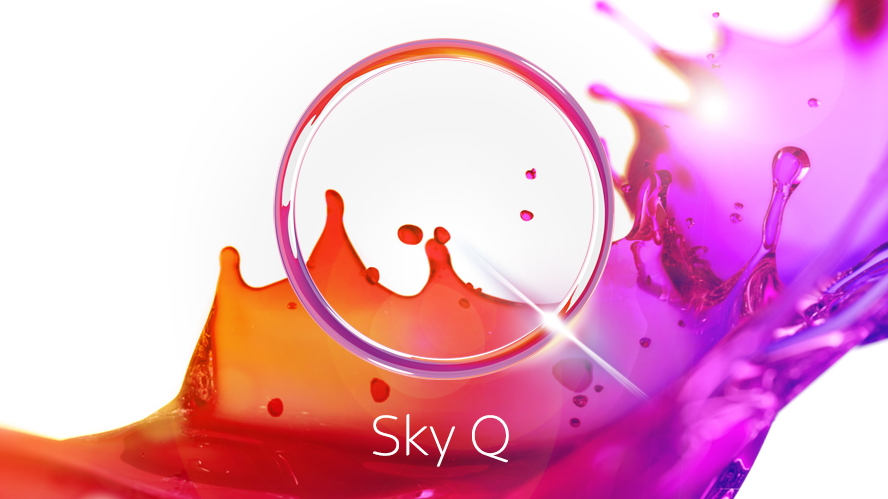
Update: Sky has confirmed to us the new Sky Q Silver set top box does in fact have HDMI 2.0 hardware hidden inside it. Sky has limited the output, via software, to the HDMI 1.4b standard at launch and will be releasing a firmware unlock when the 4K service launches later in the year.
Original article below...

Sky is soon to launch its premium TV service, Sky Q. It's a high-end connected platform which has the potential to deliver almost everything we could want in a modern TV experience.
We recently got our hands on the Sky Q system, and you can colour us very impressed indeed. The combination of the latest set-top box technology, seamlessly accessible content – whether recorded, on-demand or live – and the ability to watch on practically any of your screens in or outside of the home makes Sky Q a really powerful setup.
However, while our time with the new system has gotten us very excited about the future of Sky's premium platform, it's not without its potential problems, the biggest of which is whether the top-end Sky Q Silver box is actually going to be capable of flinging the full force of 4K video into our faces.
Does Sky Q have the technical chops to give us the Ultra HD experience we want, or is it more important for it to have all the content?
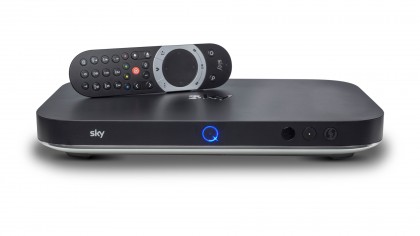
4K stunts
Sky Q's 4K Ultra HD service isn't going to be available at launch; it's set to be introduced later in the year, when the volume of 4K content is in place, and when there are more compatible TVs out there to actually watch it on.
Get daily insight, inspiration and deals in your inbox
Sign up for breaking news, reviews, opinion, top tech deals, and more.
"What we wanted to do is to make sure when we launched it it wasn't a stunt. That we really had a breadth of content across not just a couple of sports matches," explained Andrew Olson when I went to play with Sky Q.
Olson is the Director of Product and Planning at Sky, and very much the daddy of Sky Q. And his comments really highlight both where Sky sees 4K content at the moment, and how it regards its closest 4K competition.
The first actual 4K broadcast channel went live last August, when BT Sport launched its BT Sport Ultra HD channel with the Charity Shield football match at Wembley Stadium. But the channel isn't exactly awash with 4K content – there are just five live Ultra HD football matches showing in February.
I reckon even BT Sport would admit it got onboard the 4K broadcast train pretty damned early, and that it was more about getting there first – and beating Sky to the punch – than about creating a constant 24/7 stream of 4K sport.
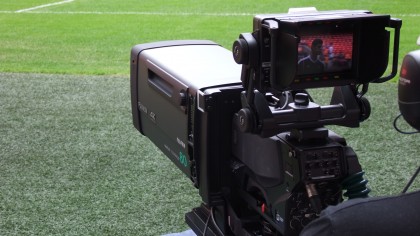
"When everyone moved from SD to HD it was very much sport that lead that," BT Sport MD Delia Bushell told me as I stuffed lavish bite-sized deserts into my face at the Charity Shield last August. "So I think again it will be the same for Ultra HD.
"Live sport is always where it crystallises the step-change in the viewing experience. So, for BT Sport to come first launching Ultra HD, for us, is a real milestone."
However, at the moment BT Sport Ultra HD is an almost dormant channel, which only sparks into life when it has a live event to broadcast in 4K. The rest of the time people stick with the standard HD channels.
Sky is looking for its Sky Q Ultra HD package to be something that becomes a complete replacement for some of its HD channels.
"We have movies, we've got entertainment and we're really trying to launch the broadest service we can," said Olson. "So that it's something customers will use all the time, not just a stunt."
Tech over content
So Sky reckons it's going to have the content edge over BT when it does finally get around to launching a proper broadcast 4K service – but will it have the technological edge?
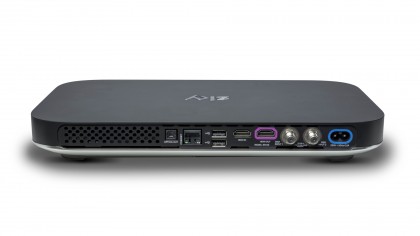
Our main concern is around the fact that the premium set-top box of the service, the Sky Q Silver, only has an HDMI 1.4b output at the rear. That's the connection which is set to be jammed into your 4K TV to flood the screen with lovely Ultra HD visuals.
Unfortunately, HDMI 1.4b is only rated to carry 4K video at 30Hz, which essentially translates to a 30fps speed limit on moving images.
Sky does say it's going to be updating the Sky Q Silver for Ultra HD playback, but won't go into specifics as to what that means. If there is HDMI 2.0 silicon sleeping inside the Silver which just needs a little firmware loving to wake it up later in the year then we're all good; but if not then Sky Q, especially on the 4K sport side, will suffer.
HDMI 2.0 is the current de facto standard for premium 4K playback from Ultra HD Blu-ray drives and, more importantly, the Humax UHD box that comes with the BT Sport Ultra HD subscription. And it's the connection which will allow for the full 4K experience running at 60Hz.

BT Sport's 4K channel plays its Ultra HD content back at 50fps, and for live sport that makes a real difference. With a combination of the extra visual fidelity afforded by 4K pictures and the doubling of the traditional TV frame rate, live sport feels far more like you're watching through a window rather than on a screen.
If Sky Q can't match that experience, then its advanced premium platform is going to look rather last-gen by comparison.
We've reached out to Sky for confirmation on what the Sky Q Silver box is going to be capable of outputting, but it's remaining tight-lipped on the technical details of its upcoming 4K service.
Off the pitch
If Sky wants to be the king of 4K sport then it not only needs to have the content nailed – it needs to have technical parity with its main rival for live sport licensing.
Outside the realm of sports, though, does it really matter if Sky Q is only able to keep on treading the same 24fps tracks we've grown used to over years of watching movies and TV shows?
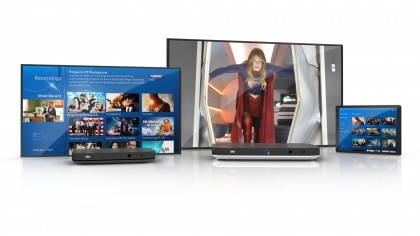
Sky is aiming to have both movies and standard TV running in 4K when it launches the Ultra HD service later in the year, and my experience using the 4K Amazon Fire TV box with its 30fps limit makes me think it's not going to matter a whole heap.
Watching the latest Amazon content, running in both 4K and HDR from Prime Instant Video, I'm not at all worried about the frame rate. After all, most video is shot at the lower end of the frame rate spectrum anyways.
The general backlash against The Hobbit and its high frame rate (HFR) showing has probably fed into a distrust or disinterest in moving the game forward any time soon.
In the end it all comes down to how Sky goes about selling its upcoming Sky Q 4K service. If, as we kind of expect, it looks to launch just before the new football season in August, touting itself as the home of 4K footie, then it could suffer from not matching BT Sport's more high-end offering.
But if its main aim is to offer a total Ultra HD entertainment package, then that 30fps speed limit isn't going to amount to much more than a marketing duel with BT.